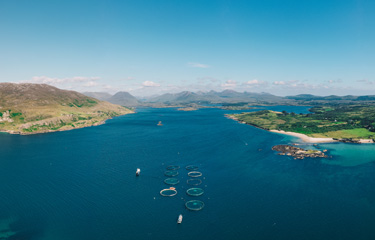Two partners in Ireland’s coalition government have clashed over salmon-farm licensing policy.
Green Party leader Eamon Ryan, currently Ireland’s minister for environment, climate change, and communications, wrote recently to his ministerial colleague Charlie McConalogue – a member of the Fianna Fáil party and head of Ireland’s Department of Agriculture – questioning the system in place to regulate salmon farms’ impact on wild stocks, with particular concern for the spread of sea lice.
Ryan’s department oversees Inland Fisheries Ireland, the state agency in charge of protecting wild salmon, while the Agriculture Ministry oversees aquaculture licensing guided by research produced by another state entity, the Marine Institute. McConalogue, in a reply to Ryan’s letter, defended the vigor of the institute’s research and the regulatory process it operates, which he said is also bound by European Union conservation law.
The tiff comes amid opposition from anglers and environmentalists to a license sought by Mowi for a large salmon farm in Ballinakill Bay, part of the scenic region of Connemara on Ireland’s west coast. Tourism executives in the area have also spoken against the project, fearing an impact on sizeable numbers of angling tourists that visit the region.
All Irish salmon production – surpassing 13,000 metric tons in 2021 – is certified as organic. The value of Ireland’s salmon exports in 2021 was EUR 129 million (USD 132.1 million), up 13 percent year-over-year, making it the country’s top seafood export by value, according to Ireland’s food marketing agency, Bord Bia. The primary export markets for Irish salmon, according to Bord Bia, are France, which took 46 percent of Ireland’s total salmon exports; Germany, which took in 14 percent of Irish salmon exports; Poland, accounting for 12 percent of Irish salmon exports, and Great Britain, which took 7 percent.
Photo courtesy of 4H4 Photography/Shutterstock







